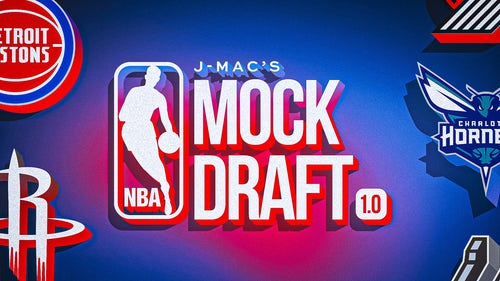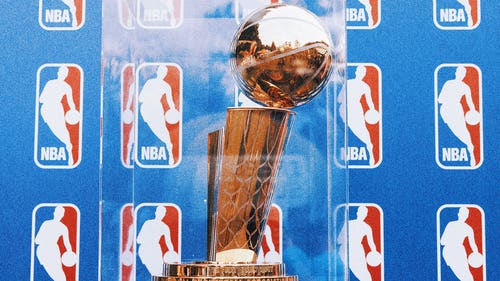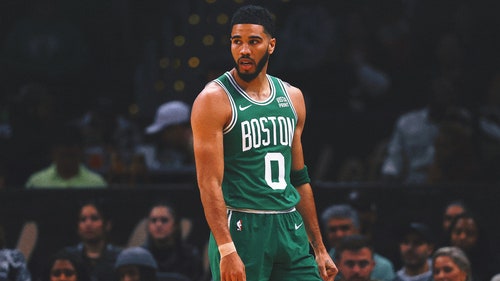
Atlanta Hawks: 5 reasons John Collins was a good pick

John Collins was selected with the 19th pick in the 2017 NBA Draft by the Atlanta Hawks
Jun 22, 2017; Brooklyn, NY, USA; John Collins (Wake Forest) is introduced by NBA commissioner Adam Silver as the number nineteen overall pick to the Atlanta Hawks in the first round of the 2017 NBA Draft at Barclays Center. Mandatory Credit: Brad Penner-USA TODAY Sports
Facing the possibility of a massive rebuilding effort, the first piece the Atlanta Hawks added in the 2017 NBA Draft was power forward John Collins.
Numerous times prior to his first NBA Draft as general manager, Travis Schlenk stated he would take the most talented player available to the Atlanta Hawks, rather than draft out of need.
Neither Schlenk nor a slew of mock drafts anticipated Wake Forest power forward John Collins to be available with the 19th pick.
With Collins still on the board, Schlenk turned down several opportunities to trade down and decided to bring in the 19-year-old as an insurance policy, in case Paul Millsap decides to sign with another team in free agency.
Collins was named the Most Improved Player in the ACC last season, as he became one of the most unstoppable offensive players in the NCAA, averaging 19.2 points and 9.8 rebounds per game on 62.2 percent shooting from the field.
The gaudy statistics propelled Collins from an unheralded NBA prospect following his debut season in college to a possible lottery selection after his sophomore campaign.
Monday night, Milwaukee's Malcom Brogdon became the first player selected outside of the lottery to win Rookie of the Year honors since Mark Jackson, the 18th overall pick in 1987.
Atlanta is hoping Collins can make it two consecutive seasons.
The skill-set of Collins, coupled with a Hawks team that may have several spots to fill in the frontcourt could lead to plenty of chances to produce lofty scoring and rebounding totals during his debut season in Atlanta.
Collins may have some work ahead of him if he plans to beat out Markelle Fultz, Lonzo Ball and the other premier players in his draft class, but he was certainly the right choice for Atlanta. Here are the five main reasons why.

Jan 28, 2017; Winston-Salem, NC, USA; Wake Forest Demon Deacons forward John Collins (20) goes up for a shot against the Duke Blue Devils in the first half at Lawrence Joel Veterans Memorial Coliseum. Mandatory Credit: Jeremy Brevard-USA TODAY Sports
5. Ability to improve
Twelve months ago, John Collins wasn't on the Atlanta Hawks' radar, or any other NBA franchise following his freshman season in college.
Collins joined Wake Forest as a three-star recruit and wasn't ranked among the top 75 potential NBA Draft picks in college basketball until his fantastic 2016-17 outing. His own team wasn't even sure what to make of him, as Collins was in the starting lineup just once.
The 6'10" forward transformed from an afterthought into one of the most potent scoring forces in college basketball.
As a sophomore, Collins managed to more than double his scoring, rebounding and shot block averages while increasing his field goal percentage by 7.7 percent. After failing to post a double-double during his debut season with Wake Forest, he tallied 17 last year.
The rapid progress earned a selection to the first-team All-ACC, the Most Improved Player in the conference and he was runner-up to North Carolina's Justin Jackson for ACC Player of the Year.
Atlanta is hoping Collins experiences a similar jump in productivity throughout his NBA career and believes he can continue his improvement.

Feb 11, 2017; Winston-Salem, NC, USA; Wake Forest Demon Deacons forward John Collins (20) dunks the ball during the first half against the North Carolina State Wolfpack at Lawrence Joel Veterans Memorial Coliseum. Mandatory Credit: Jeremy Brevard-USA TODAY Sports
4. Rebounding ability
For all of the criticism surrounding Dwight Howard's time with the Atlanta Hawks, his 12.7 rebounds per game were instrumental as the team ranked ninth in the league in rebounding.
The Hawks ranked 10th in offensive rebounds and 13th in defensive rebounds while out-rebounding opponents by 0.5 per game. The selection of John Collins makes the trade of Howard to Charlotte a bit more digestible.
Collins proved to be adept at collecting missed shots on both ends of the floor, as he totaled 200 defensive and 124 offensive rebounds. Only North Carolina's Kennedy Meeks managed more offensive rebounds in ACC play last year.
Collins tallied 10 performances with at least 20 points and 10 rebounds, tops in the conference, while ranking third in offensive rebounding percentage and leading all ACC players in defensive and total rebounding percentages.
The 220-pound forward ranked second in the conference with 9.8 rebounds per game, as he proved capable of coming away with the ball even when battling multiple opponents. The rebounding presence of Collins could be a huge asset during the 2017-18 season.

Nov 23, 2016; Winston-Salem, NC, USA; Coastal Carolina Chanticleers guard Jaylen Shaw (5) shoots the ball against Wake Forest Demon Deacons forward John Collins (20) during the second half at Lawrence Joel Veterans Memorial Coliseum. Wake defeated Coastal Carolina 86-74. Mandatory Credit: Jeremy Brevard-USA TODAY Sports
3. Dominant in the pick-and-roll
One of the most important aspects of the offensive sets for the Atlanta Hawks is the simple pick-and-roll. Point guard Dennis Schroder ran the play an average of 10.1 times per game, the seventh-highest in the league a year ago, generating nearly half of the points he scored.
Schroder scored 8.4 points off pick-and-roll plays, accounting for 46.9 percent of his scoring average, which was a career-high 17.9 points per game.
To succeed at the play, the Hawks will need to punch any defenses that key in on Schroder, meaning the team needs a dominant presence at the rim to take advantage of easy looks at the basket.
No prospect in the 2017 NBA Draft is more adept at attacking the basket in pick-and-roll sets than John Collins. When he rolled to the basket, Collins scored over 1.7 points per possession, an exceptional mark.
If Collins is able to replicate his proficiency off the pick-and-roll in the NBA, he could become one of the biggest steals in the 2017 NBA Draft class.

Dec 9, 2016; Greensboro, NC, USA; Wake Forest Demon Deacons forward John Collins (20) dunks the ball during the second half against the UNC-Greensboro Spartans at Greensboro Coliseum. Wake defeated UNCG 78-75. Mandatory Credit: Jeremy Brevard-USA TODAY Sports
2. Extreme efficiency
No player in the NCAA was able to contribute more efficiently for their program than John Collins at Wake Forest last season.
The Atlanta Hawks managed to land a player that posted a Player Efficiency Rating of 35.9, the fourth-highest PER any college player has recorded since 2009-10, when the formula started being tracked.
More from Hoops Habit
Since the 2003-04 season, only four players (Stephen Curry, Anthony Davis, Russell Westbrook and LeBron James) have finished an NBA season with a PER above 30.
Collins has a long way to go before he joins elite company, but during his time at Wake Forest, his efficiency was remarkable. During his sophomore season, Collins shot below 50 percent from the field on just seven occasions, while converting 80 percent or better of his field goals four times.
The true shooting percentage Collins posted, at 67 percent, was the best among all players in the 2017 NBA Draft class.
In his lone NCAA Tournament appearance, Collins shot 9-of-13 from the field and hit each of his eight attempts from the free throw line as he tallied 26 points, nine rebounds and a steal in 36 minutes of play against Kansas State.

Dec 31, 2016; Winston-Salem, NC, USA; Wake Forest Demon Deacons forward John Collins (20) shoots a three point shot in the first half against Clemson Tigers forward Elijah Thomas (14) at Lawrence Joel Veterans Memorial Coliseum. Mandatory Credit: Jeremy Brevard-USA TODAY Sports
1. Post presence
The Atlanta Hawks chose the most dominant post player in the NCAA with a mid-first round pick, making John Collins a prospect the team couldn't bypass in the 2017 NBA Draft.
Collins routinely dominated his opponent with his back to the basket, scoring 7.6 points per game out of the post, the highest average of any college player a year ago. As a sophomore, Collins proved he was able to exploit defenders in the post on nearly every possession and saved his best play against conference opponents.
Against the ACC, Collins averaged 20.3 points, 9.3 rebounds, 1.3 blocks and shot 64 percent from the field, making him the third leading scorer in the conference.
Only three times in 19 games against ACC opponents was Collins limited to below 50 percent shooting from the field, largely because of his superior footwork, positioning and soft touch at the basket.
Wake Forest enabled Collins to operate in the post as much as he wanted, accounting for 48.4 percent of his total possessions, as he is comfortable setting up from both the left and right block.
With the removal of Dwight Howard from the roster, along with the possible departure of Paul Millsap in free agency, the selection of Collins was the best choice Atlanta could make with the 19th pick in the 2017 NBA Draft.












































































































































